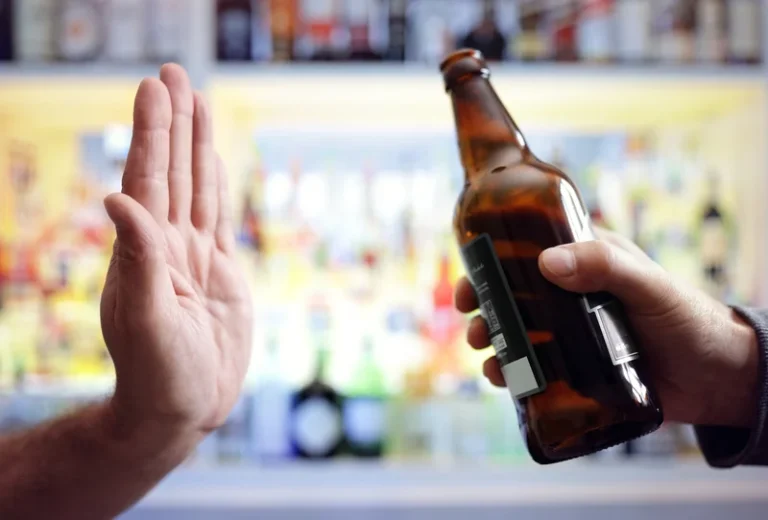In addition to feeling less anxious and having better digestion, you may notice bigger changes a few months into sobriety. For instance, your doctor might find that your heart and liver are in better shape, or your skin may have a certain new glow. No matter your situation, Dr. Das emphasizes the power of enlisting help as you embark on a life sans booze.
Change your environment
If you’re having trouble doing the same things you used to do, try new hobbies to fill your time. Join a gym, learn a new skill, or find sober social groups you can enjoy. Here are a just a few tips to help you reduce your drinking and stay safe. More researchers are looking at the effects of alcohol on the intestinal microbiome — the bacteria and other organisms that live inside us. It’s one thing to go out with friends for a couple of drinks, but when “just one more” routinely becomes one too many, you might have a problem. “If we do something — anything — while we are thinking of having that first drink, we change our focus to something hopefully healthier,” Fiellin said.
Set Personal Goals
- We’ve got a few ideas to help you cut back and make the most out of your weekends.
- Millions of readers rely on HelpGuide.org for free, evidence-based resources to understand and navigate mental health challenges.
- According to Dr. Streem, the bottom line is that Americans need to drink less alcohol.
- “When you drink alcohol, it makes you a little bit more talkative.
- Get helpful tips and guidance for everything from fighting inflammation to finding the best diets for weight loss…from exercises to build a stronger core to advice on treating cataracts.
- What many people might think of as a fun night out on the town can be very risky — or in some cases, life-threatening, Dr. Streem notes.
It may even help if you spend time with other nondrinkers for a while so you can support each other. It’s always wise to check with your doctor — she should be able to help you decide whether it is best for you to cut back or to abstain. People who are dependent on alcohol, or have other medical or mental health problems, should stop drinking completely. Whether you’re reducing your alcohol intake or cutting it out completely, planning some drink-free days ahead of time can help you make the most of your weekends. Over the long run, alcohol increases the risk of several cancers, including cancer of the liver, mouth, throat, voice box, esophagus, colon, and rectum.
Long-term effects and health risks of binge drinking

Long-term damage from heavy alcohol use isn’t limited to people with alcohol use disorder. The primary causes of death were alcohol and other poisonings, motor-vehicle accidents, and alcohol-related liver disease. Even though binge drinking can be a single event, it could still have severe how to stop binge drinking health consequences (e.g., alcohol poisoning, STIs, heart disease) in the short and long term. This is the amount of alcohol in your system to be considered legally impaired. For most adults, that equates to five drinks for men or four drinks for women within a two-hour period.

Binge Drinking: Dangers, Risks, and Prevention
Alcohol use can have life-long effects on developing brains and bodies. Teens who drink are also more likely to struggle with school, use other risky substances, or experience alcohol poisoning. So what should you do if your loved one initially denies having a binge drinking problem? You might want to give them a few days to reflect on what you said. If they continue to engage in the same unhealthy patterns, you could revisit the conversation later.
What organ does alcohol damage first?
As you begin to notice those health benefits, you’ll likely feel more energized and inspired to keep up your progress. If you turn to alcohol to manage emotional distress, the added overwhelm can prompt the urge to drink, making success seem even more out of reach. But maybe you’re unsure about quitting completely and don’t want to hold yourself to that goal.

We’ve got a few ideas to help you cut back and make the most out of your weekends. Heavy, long-term alcohol use can lead to alcoholic liver disease, which includes inflammation of the liver and cirrhosis. You’ll start to feel the effects of alcohol within 5 to 10 minutes of having a drink. Binge drinking is defined as men consuming five or more drinks within about two hours.
Knowing why you drink is essential, says Cyndi Turner, LCSW, LSATP, MAC, a Virginia therapist specializing in addiction treatment and alcohol moderation. Maybe you don’t think you depend on alcohol exactly, but you still wonder whether you might be drinking too much. Don’t bring up the subject when they’re already drinking or hungover. If they’re intoxicated, they might be more likely to misunderstand you, lash out, or forget the details of the conversations. Wait until you’re both able to have a clear, unrushed, and uninterrupted conversation. Their volatile behavior and emotions might even have an effect on your relationship.
What is cognitive behavioral therapy?
Knowing the facts about alcohol as a seizure trigger can help you adjust drinking decisions as needed. Alcohol deaths in 2022 were highest among people aged 45 to 64, males, people living in rural areas, and AIAN people. Alcohol death rates for AIAN people are by far the highest–5 times higher than death rates for White people, the racial group with the next highest prevalence.

